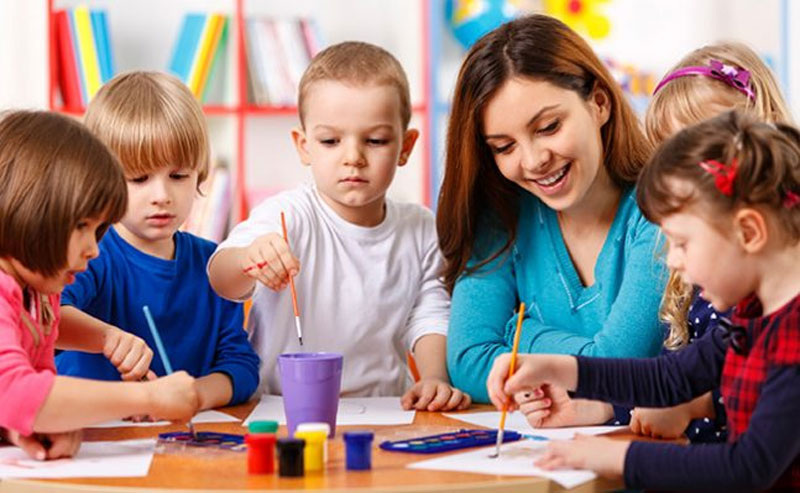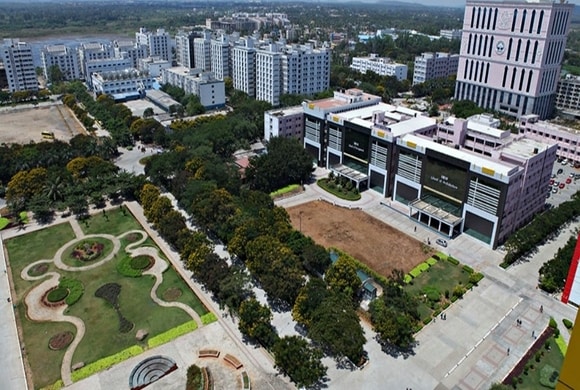
The Early Years Learning Framework (EYLF) for Australia, developed by the country’s Department of Education, outlines the national curriculum for early childhood education. Introduced in 2009, the framework is designed to be more student-centered, with increased opportunities for children to be involved in making decisions throughout their learning, and to promote their social and emotional learning.
The EYLF provides a common national curriculum for Australia’s early childhood education programs, with the goal of preparing children for independent and productive lives in today’s world. Australia’s national curriculum is reviewed annually and implemented alongside state and territory education systems. State and territory governments contribute to the review of the national curriculum and provide experts to contribute to its development. They are also charged with reviewing and implementing the framework.
Table of Contents
A Focus On The Whole Child
In the EYLF, the term ‘whole child’ is used to describe a focus on the social, emotional, physical, and intellectual development of children. The framework also places increased emphasis on developing an understanding of diversity and tolerance, as well as encouraging active social participation. In line with this, the first three years of the learning framework are dedicated to social-emotional learning, with the first year focusing on ‘Building A Positive Attitude’, the second year on ‘Social and Emotional Growth, and the third year on ‘Developing Resilience.
Within the EYLF, a greater emphasis is placed on the development of children’s reasoning and problem-solving skills, with each year dedicated to a different area of learning. The first year of the framework focuses on ‘Understanding Number’, for example, while the third year is dedicated to ‘Developing Independence’. The middle year of the framework focuses on developing children’s ‘critical thinking skills, with the second year dedicated to ‘Constructive Thinking’ and the third year dedicated to ‘Problem Solving.
Improved Planning And Coordination
One of the central goals of the EYLF is to improve planning and coordination in early childhood education. To this end, the framework provides a structure for teachers to plan and record their lessons, as well as for principals to monitor and review these plans. The framework also enables schools to share best practices and plan collaborative projects.
As part of implementing the EYLF, the Australian Curriculum, Assessment and Reporting Authority (ACARA) provide support for schools, including training and resources, to improve planning and record keeping. Additionally, the Australian Institute For Teaching and School Leadership (AITSL) provides support for principals to review their progress and identify areas for growth. The framework also enables staff to plan and manage their workload, with a weekly planning schedule implemented to support this. The introduction of the EYLF is designed to improve the planning and coordination of early childhood education in the country.
More Opportunities For Active Learning
One of the distinguishing features of the EYLF is that it provides a greater emphasis on active learning, with schools encouraged to be more hands-on and involved in their children’s learning. The framework provides schools with an outline of the content that must be delivered but encourages them to be creative in their teaching and learning, with the possibility of tailoring content to individual needs and preferences.
Within the EYLF, there is an emphasis on improving children’s social and emotional skills, with increased opportunities for students to be active participants in their learning. For example, rather than simply listening to a story, students are encouraged to actively engage with the content, asking questions and drawing conclusions. This is designed to develop greater self-esteem and confidence in children, enhancing their learning experience.
Additionally, the framework provides schools with the opportunity to plan and implement projects that involve their children in a myriad of ways. For example, a child’s artistic talents might be showcased through an art project or a drama performance, while {:gap {:kind :userinput}} could assess their social skills through a community service project.
Broad-Based Education
Another key feature of the EYLF is that it promotes a more broadly-based education. To this end, the framework encourages educators to be more knowledgeable about a range of subjects, with increased collaboration between teachers from different fields. To facilitate this learning, the EYLF provides a strong emphasis on research-based teaching methods and actively encourages schools to be more reflective practitioners, with the capacity to continually assess and improve their practice.

As part of implementing the EYLF, schools are encouraged to adopt a variety of teaching approaches, including direct instruction, collaborative planning, and project-based learning. These approaches are designed to improve student’s learning experience and ensure that they can develop a range of skills that will be valuable in today’s world. Additionally, the framework promotes the use of a range of teaching tools, including technology, to enhance student’s learning opportunities.
Dedicated Time For Self-reflection And Planning
One of the distinguishing features of the EYLF is that it provides dedicated time for self-reflection and planning. The framework acknowledges that children are more capable of self-reflection and planning than adults, and provides them with the opportunity to do so through a variety of activities, including writing and reading, arts and crafts, and mathematics. These activities are designed to promote children’s independence and drive, and to develop problem-solving skills that will be beneficial to them in later life, as well as to the community.
An Australian Perspective
The EYLF was developed by Australia’s Department of Education with the goal of equipping children with the knowledge and skills necessary to thrive in modern society.
The framework provides a strong focus on the social and emotional growth of children, with increased opportunities for students to be active participants in their learning. Additionally, the emphasis on planning and self-reflection promotes greater collaboration between teachers, as well as between teachers and other school staff, enabling them to identify areas for personal growth and professional development.
Implementing the EYLF in schools is a dynamic and evolving process, with changes made regularly to fit the needs and demands of Australian students. Updates to the framework are issued annually, with the most recent change being the addition of the ‘Digital Citizenship’ component in Year 3.



